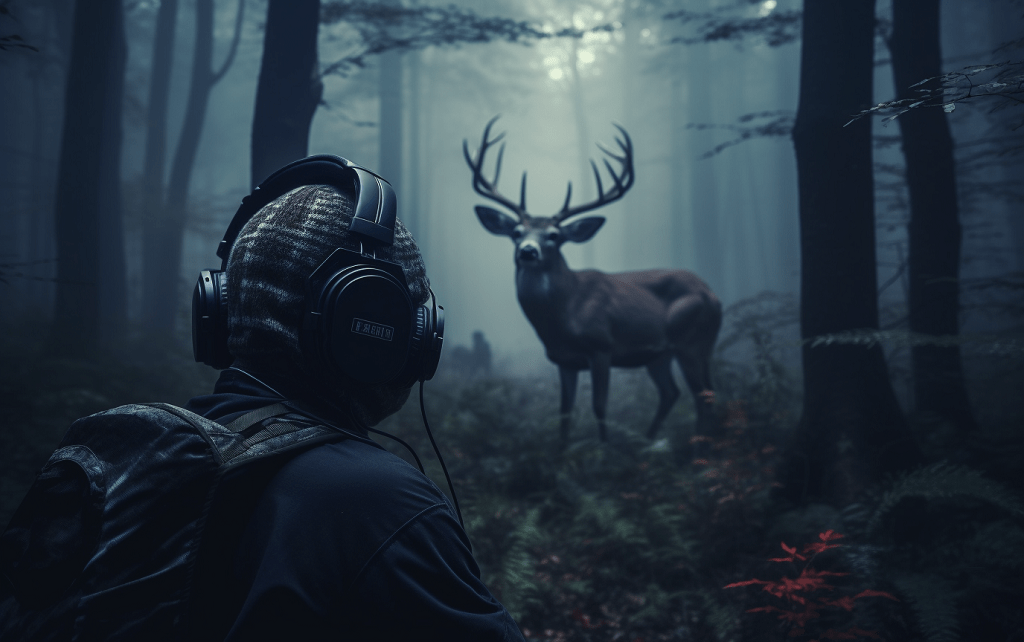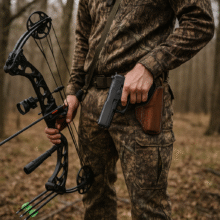Gunshot Decibels: Unveiling the Deafening Power of Firearms

Table of Contents
- Table of Contents
- Introduction
- Understanding Decibels
- The Science Behind Gunshot Decibels
- Decibel Levels of Different Firearms
- Comparing Gunshot Decibels to Everyday Sounds
- The Importance of Hearing Protection
- Legal Regulations and Gunshot Noise
- Reducing Gunshot Decibels: Suppressor Technology
- Gunshot Decibels and Public Safety
- Conclusion
- Frequently Asked Questions (FAQs)
Table of Contents
Introduction
Have you ever wondered about the thunderous sound that accompanies a gunshot? Firearms possess an immense power that extends beyond their projectile capabilities. In this article, we dive into the captivating world of gunshot decibels, uncovering their staggering intensity and exploring the significance of hearing protection.
Understanding Decibels
What are Decibels?
Decibels (dB) are the unit of measurement used to quantify sound intensity. It serves as a scale to gauge the loudness or quietness of sounds.
Decibels and Sound Measurement
In order to grasp the magnitude of decibels, it is crucial to understand the logarithmic nature of the decibel scale. Specifically, each increase of 10 dB represents a tenfold increase in sound intensity. For instance, a sound at 80 dB is ten times louder than a sound at 70 dB.
The Science Behind Gunshot Decibels
The Impact of Firearms on Hearing
Moreover, gunshots have a notorious reputation for their potential to cause irreversible damage to human hearing. The intense sound produced by firearms can surpass the threshold of pain, resulting in hearing loss or tinnitus.
Factors Affecting Gunshot Decibels
Several factors contribute to the decibel levels produced by a gunshot, including the type of firearm, ammunition used, barrel length, and environmental conditions. Understanding these variables is essential in comprehending the variation in gunshot noise.
Decibel Levels of Different Firearms
Handguns
Handguns, such as pistols and revolvers, generate significant noise when discharged. The decibel levels produced by handguns can range from 140 dB to 165 dB, depending on factors such as caliber and barrel length.
Rifles
Rifles, commonly used for hunting and sport shooting, produce high decibel levels due to their larger ammunition and longer barrels. On average, rifle shots can reach between 155 dB and 175 dB, causing considerable auditory impact.
Shotguns
Shotguns, renowned for their wide range and versatility, can generate intense decibel levels. A shotgun blast typically falls within the range of 150 dB to 170 dB, varying based on the gauge and ammunition used.
Submachine Guns
Submachine guns, characterized by their rapid-fire capability, emit substantial decibel levels. These firearms can produce noise ranging from 155 dB to 175 dB, echoing their powerful and forceful nature.
Comparing Gunshot Decibels to Everyday Sounds
Gunshot vs. Fireworks
How do gunshots fare against other explosive sounds? Surprisingly, the sound levels of gunshots can exceed those of fireworks, showcasing the tremendous acoustic impact firearms possess.
Gunshot vs. Jet Engine
Ever wondered about the sheer volume of a gunshot compared to a roaring jet engine? Discover the surprising contrast between these two mighty sources of sound and grasp the magnitude of gunshot decibels.
Gunshot vs. Rock Concert
Are rock concerts louder than gunshots? Unravel the mystery behind these sound clashes and find out which event claims the crown for generating ear-splitting decibel levels.
The Importance of Hearing Protection
Types of Hearing Protection Devices
Shielding our ears from the deafening impact of gunshots is paramount. Explore various hearing protection options, from earmuffs to earplugs, and understand how they mitigate the risk of hearing damage.
Best Practices for Hearing Protection
Merely wearing hearing protection is not enough; understanding how to use it correctly is crucial. Discover essential tips and techniques to ensure maximum effectiveness of hearing protection devices and safeguard your precious sense of hearing.
Legal Regulations and Gunshot Noise
Noise Regulations and Guidelines
In an effort to control excessive noise pollution, many regions have established regulations and guidelines concerning gunshot noise. Delve into the legal framework surrounding gunshot noise and its implications for gun owners and shooting ranges.
Legal Requirements for Suppressors
Suppressors, commonly known as silencers, have long been a subject of fascination and misconception. Learn about the legal requirements and restrictions surrounding suppressor ownership and their potential impact on reducing gunshot decibels.
Reducing Gunshot Decibels: Suppressor Technology
How Suppressors Work
Unlock the secrets of suppressor technology and understand how these devices attenuate the sound of gunfire. Delve into the science behind suppressors and their role in reducing gunshot decibels.
Benefits and Limitations of Suppressors
Suppressors offer advantages beyond noise reduction. Explore the additional benefits of using suppressors, as well as their limitations, ensuring a comprehensive understanding of these devices.
Gunshot Decibels and Public Safety
Noise Pollution and its Effects
The impact of noise pollution extends far beyond personal inconvenience. Delve into the adverse effects of excessive noise on public health, well-being, and quality of life, shedding light on the importance of managing gunshot decibels.
Noise Mitigation Strategies
Discover innovative strategies and techniques employed to mitigate the impact of gunshot noise in various settings, from residential areas to shooting ranges. Explore the delicate balance between preserving recreational activities and safeguarding public tranquility.
Conclusion
Gunshot decibels are an undeniable force to be reckoned with. Understanding the intensity of firearm noise and its potential consequences is crucial for both gun enthusiasts and the general public. By prioritizing hearing protection and exploring technologies like suppressors, we can strike a balance between our passion for firearms and our responsibility to mitigate the impact of gunshot decibels on our auditory health.
Frequently Asked Questions (FAQs)
- Are all firearms equally loud?
- While the decibel levels of firearms can vary, factors such as caliber, barrel length, and ammunition type contribute to variations in noise intensity.
- Can wearing earmuffs completely eliminate the risk of hearing damage from gunshots?
- Earmuffs provide effective hearing protection, but it’s important to wear them correctly and ensure a proper fit for optimal results.
- Do suppressors make guns silent?
- Suppressors reduce the sound signature of firearms, but they do not eliminate the noise entirely. They significantly reduce the decibel levels, making shooting more comfortable and less harmful to hearing.
- Is it legal to own a suppressor for personal use?
- The legality of owning a suppressor varies by country and jurisdiction. It’s essential to familiarize yourself with local laws and regulations regarding suppressor ownership.
- How does excessive noise affect public health?
- Excessive noise can lead to various health issues, including hearing loss, sleep disturbances, stress, and cardiovascular problems. Managing noise pollution is crucial for public well-being.
This concludes our exploration of gunshot decibels and their significance. Remember, protecting your hearing should always be a top priority when engaging in shooting activities. Stay informed, take appropriate precautions, and enjoy your passion while safeguarding your auditory health.







